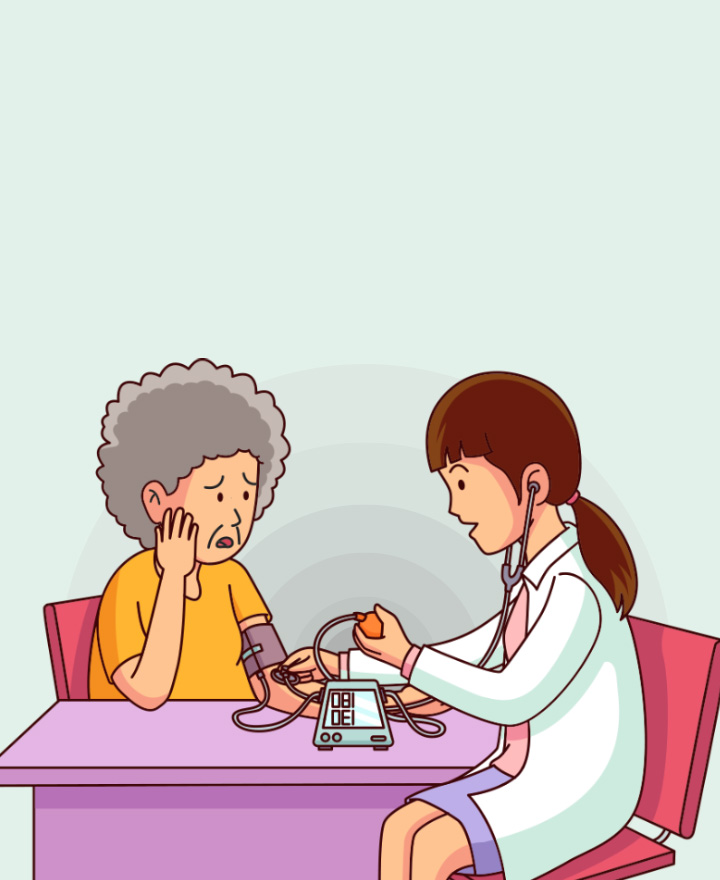

Why Do I Feel Nauseous When It Rains?
Have you ever asked yourself, ‘Why do I feel nauseous when it rains?' Well if you have then don’t worry you are not alone. A feeling of nausea during monsoons can be easily associated with many individuals. This may be caused by several factors and knowing the causes will help you manage and prevent experiencing this discomfort. Read on to know more.
Causes of Nausea During Monsoon
Nausea during the rainy season can be caused by several factors:
1. Change in Air Pressure:
A sudden drop in air pressure is common during the rainy weather. This change can affect your inner ear, leading to dizziness and nausea. If you've ever asked yourself, "Why do I feel nauseous when it rains?" the answer might lie in how your body reacts to these shifts in pressure.
2. Increased Humidity:
Rain often brings higher humidity levels, making the air feel heavier. This added moisture in the air can lead to a sensation of suffocation or difficulty breathing, potentially causing nausea.
3. Sensory Overload:
The sounds and smells associated with rain can sometimes be overwhelming. The constant pitter-patter, the smell of wet earth, and even the sight of dark clouds can overload your senses, leading to feeling of nausea.
4. Change in Diet:
Seasonal changes in food availability can lead to sudden dietary changes that may upset the stomach.
5. Allergies:
Increased mold and pollen during the rainy season can trigger allergic reactions, which may include nausea.
How to Manage It?
Feeling nauseous when it rains can be unsettling. Here are some effective tips for managing nausea during rainy weather:
1. Stay Hydrated:
Drinking plenty of water can help alleviate the feeling of nausea. Staying hydrated ensures your body is well-prepared to handle environmental changes.
2. Stay Indoors:
If possible, stay indoors during heavy rain to avoid direct exposure to the elements. This can help reduce the sensory overload that might be causing nausea.
3. Use a Dehumidifier:
Using a dehumidifier can help control the humidity levels in your home, making the air feel lighter and easier to breathe.
4. Ginger:
Eating ginger candies or drinking ginger tea can help alleviate nausea for some people.
5. Eat light:
If you feel like eating, opt for easy-to-digest and less spicy foods like crackers or toast.
6. Engage in a relaxing activity:
Distract yourself by engaging in activities such as listening to music or reading as it can help take your mind off the nausea.
FAQs
1. Can the smell of rain cause nausea?
Yes, the smell of rain, also known as petrichor, can be overwhelming for some people, leading to feelings of nausea.
2. Does everyone feel nauseous when it rains?
No, not everyone experiences nausea during the rainy weather, but it is common among those sensitive to changes in air pressure, humidity, or sensory stimuli.
3. Can weather changes affect your health?
Weather changes, particularly during rain, can impact individuals differently, leading to symptoms like nausea, headaches, and joint pain in some people.
Conclusion
Feeling nauseous when it rains is a common experience that can be attributed to several factors, including changes in air pressure, increased humidity, and sensory overload. The next time you find yourself wondering, "Why do I feel nauseous when it rains?" remember these tips to help you feel better.
One of the important components of our overall wellness is also being financially secured. Healthcare emergencies can happen any time, but a good health insurance policy can protect you from such uncertain situations. To know more about Wellness and other health related tips, visit the wellness corner.
Source: mayoclinic.org, kaplansinusrelief.com, or.jp
Disclaimer: This blog provides general information and discussions about health and related subjects. The information and other content provided in this blog, website or in any linked materials are not intended and should not be considered, or used as a substitute for, medical advice, diagnosis or treatment. Kindly contact your Doctor before starting a new medicine or health regime.
Related Articles
Does Rain Make Joint Pain Worse?
Health Effects of Acid Rain on Humans
Health Benefits of Drinking Rainwater
7 Health and Safety Tips for Rainy Season
Published on November 18, 2024














 Health Insurance
Health Insurance  Travel Insurance
Travel Insurance  Car Insurance
Car Insurance  Cyber Insurance
Cyber Insurance  Critical Illness Insurance
Critical Illness Insurance
 Pet Insurance
Pet Insurance
 Bike/Two Wheeler Insurance
Bike/Two Wheeler Insurance  Home Insurance
Home Insurance  Third Party Vehicle Ins.
Third Party Vehicle Ins.  Tractor Insurance
Tractor Insurance  Goods Carrying Vehicle Ins.
Goods Carrying Vehicle Ins.  Passenger Carrying Vehicle Ins.
Passenger Carrying Vehicle Ins.  Compulsory Personal Accident Insurance
Compulsory Personal Accident Insurance  Travel Insurance
Travel Insurance  Rural
Rural